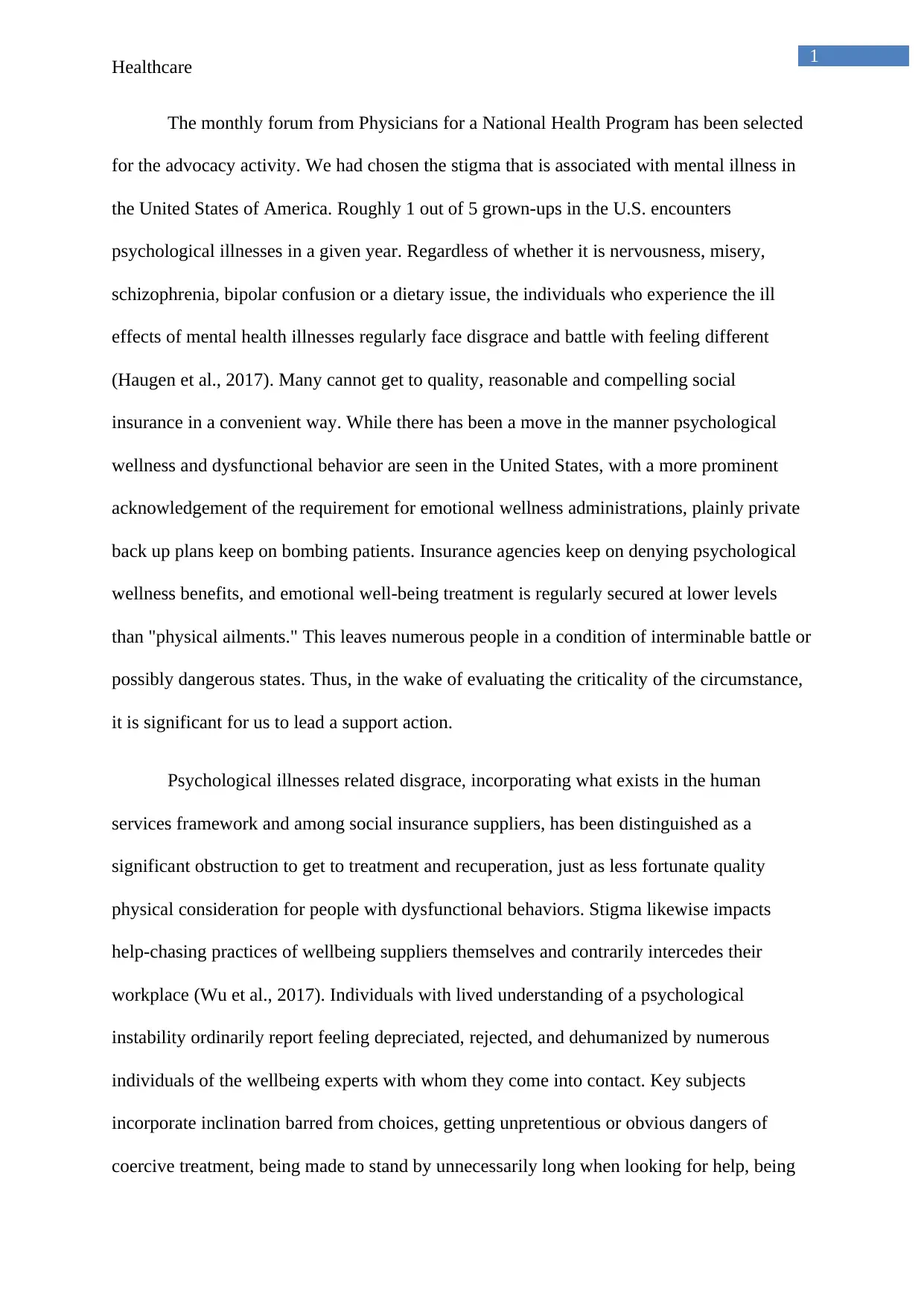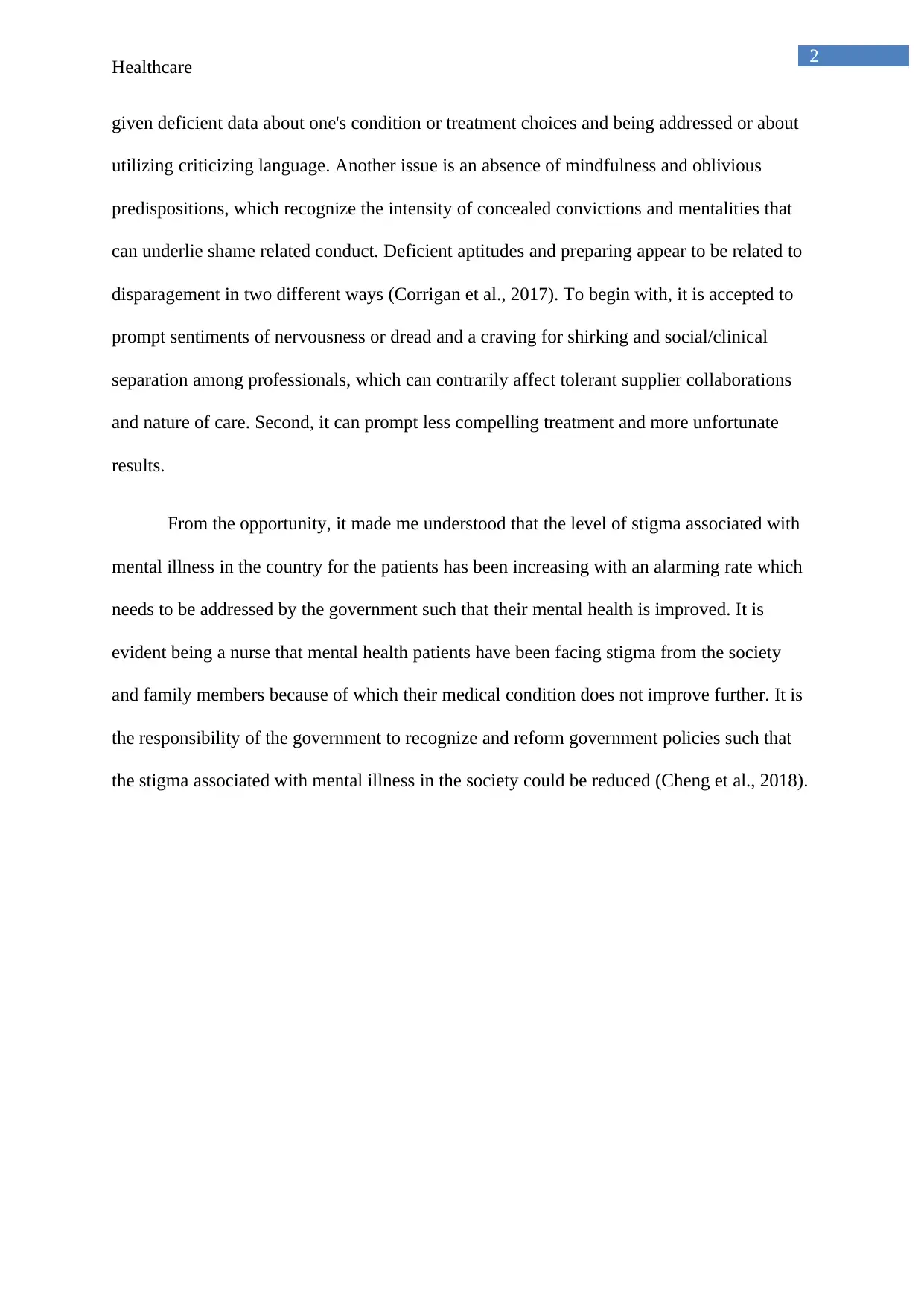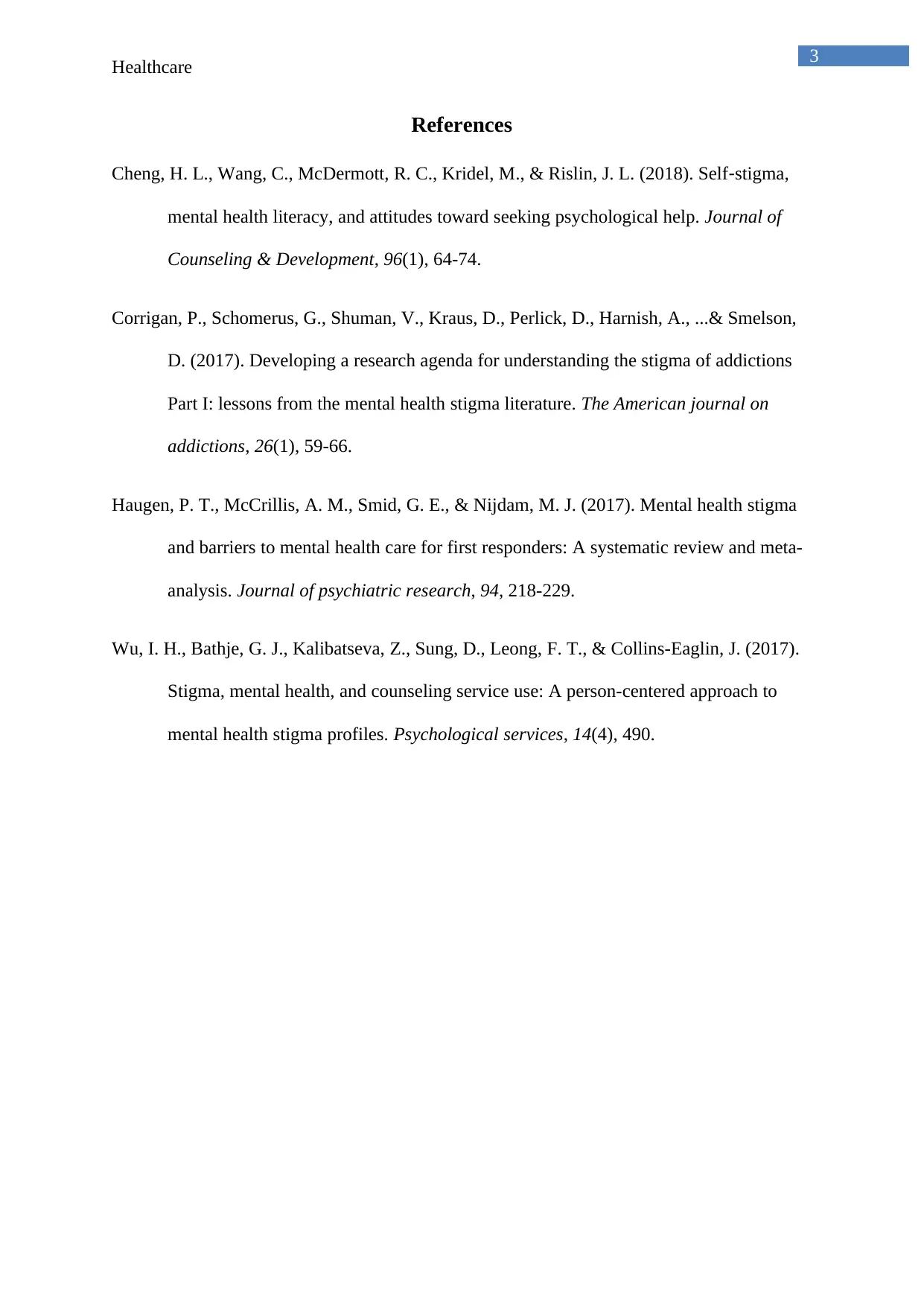Mental Health Stigma Advocacy Report: Healthcare Policy Analysis
VerifiedAdded on 2022/08/15
|4
|831
|51
Report
AI Summary
This report analyzes the significant issue of mental health stigma in the United States, focusing on its impact on patients and the healthcare system. It examines the challenges faced by individuals with mental illnesses, including limited access to quality care and the negative effects of stigma from both society and healthcare providers. The report identifies the role of insurance companies in denying mental health benefits and highlights the need for policy reform to address these issues. The author emphasizes the importance of advocacy to reduce stigma and improve mental health treatment. It references key studies and provides a call to action for government intervention to improve the mental health of the patients. The report underscores the urgency of addressing stigma to improve patient outcomes and access to care.
1 out of 4








![[object Object]](/_next/static/media/star-bottom.7253800d.svg)